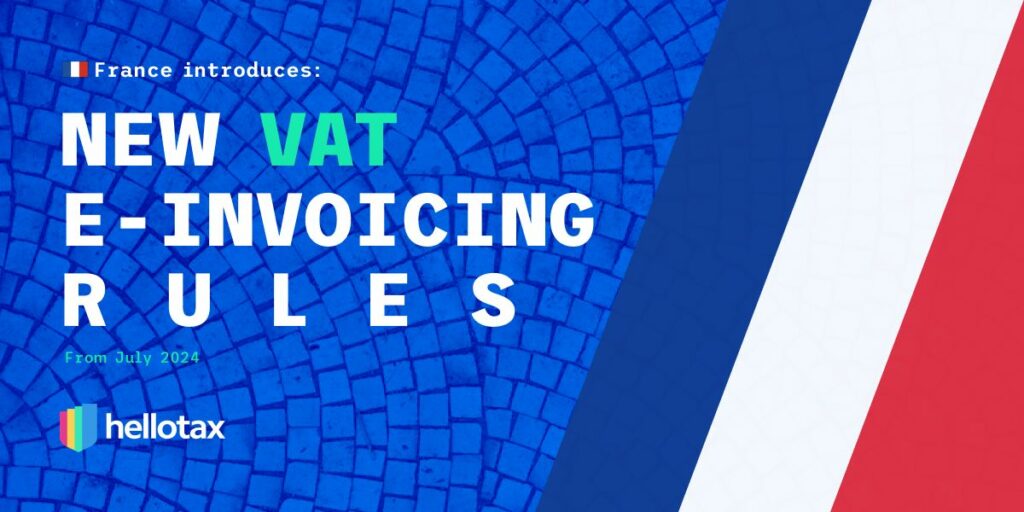
In a major development impacting businesses across France, the French General Directorate of Public Finance has revised the implementation timeline for mandatory B2B e-invoicing and e-reporting. Initially slated for a rollout from July 2024, the updated VAT regulation timeline in France now commences in phases starting from September 2026 for different business categories.
Maria
Last Updated on 26 January 2024Overview of France’s VAT e-invoicing legislation (Ordinance No. 2021-1190)
This pivotal ordinance mandates e-invoicing for domestic B2B transactions and e-reporting of transactional data for cross-border B2B transactions, B2C transactions taxable in France, and payment data for services. Notably, B2G e-invoicing has been a requirement since January 1, 2020.
Objectives behind France’s e-invoicing and e-reporting system
The French government’s commitment to modernizing business processes is evident in its goals for this new system:
- Combating tax fraud.
- Streamlining VAT reporting obligations.
- Reducing the administrative and financial burden of tax control.
- Fostering a more competitive business environment.
- Providing real-time insights into economic activities.
How e-invoicing works for businesses in France
Under these new regulations, French companies engaged in B2B transactions must adopt electronic invoicing, complying with specific formats and informational criteria.
Impact and scope: Who must comply with France’s e-invoicing rules?
All VAT-registered businesses in France, irrespective of size, are subject to these new e-invoicing rules. However, businesses outside France are exempt unless they are registered for VAT in France and engage in transactions with individuals.
Revised Implementation Timeline for French VAT E-Invoicing
- Large companies: September 1, 2026.
- Mid-sized companies: September 1, 2026.
- SMEs and micro-enterprises: September 1, 2027.
- The requirement to receive invoices electronically becomes universal for all companies from September 1, 2026.
Mandatory payment data reporting under France’s new VAT rules
French companies must accurately report payment information for specific invoices and sales to facilitate the French tax administration’s pre-filling of VAT returns.
Consequences of Non-Compliance with France’s E-Invoicing Regulations
Businesses that fail to adhere to these e-invoicing requirements may face fines of €15 per invoice, subject to annual caps.
Stay ahead in compliance: Contact us for expert guidance on France’s new VAT e-invoicing rules
Our team is dedicated to helping you understand these changes and ensuring your business remains compliant with France’s evolving VAT regulations. For more information and expert assistance, please contact your account manager or our Sales team.
Should you require more information or have questions regarding this new regulation, our team is here to assist you. Please feel free to reach out to your account manager or contact our Sales team for further guidance and support. We are committed to helping you navigate through these changes and ensuring your business remains compliant with the latest regulations.



